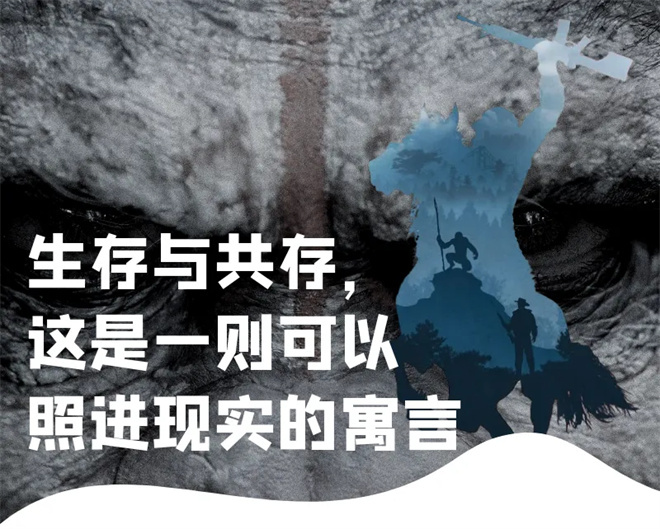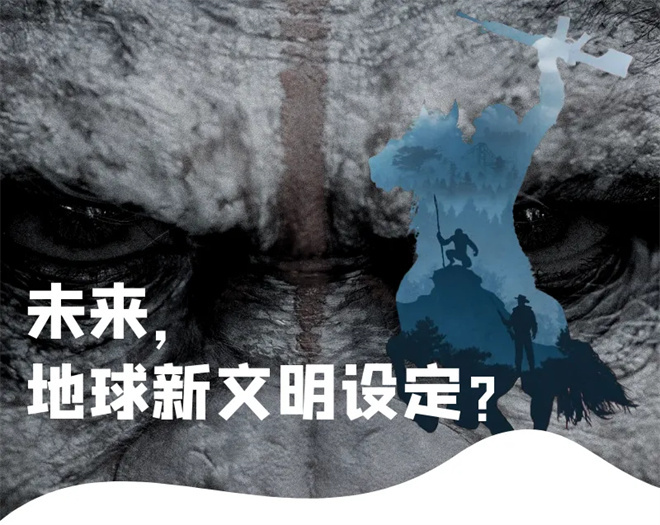(Text/Zhang Zhifeng Editor/Ma Yuanyuan) In recent years, gree real estate, whose main real estate business has gone from bad to worse, has been "good news frequently" in the fields of big health and big consumption. This time, he finally got a big fall.
A few days ago, gree real estate announced that the transfer of 1.95 billion shares of Kehua Bio, which had been prepared by gree real estate for nearly three months, had to be terminated because the transfer of shares had not been completed so far and could not meet the expectations of all parties to the transaction.

It is worth noting that all kinds of evidence show that the termination of this transaction is directly related to the arbitration case of over 10 billion yuan previously involved by the target company Kehua Bio.
Not long ago, on July 14th, gree real estate announced that its equity participation in Kehua Bio (002022.SZ) involved an arbitration with an amount exceeding 10.5 billion yuan.
At that time, the transferee Shengxiang Bio also said that the transaction had not been notified and decided by the Shenzhen Stock Exchange, and the transaction was uncertain.
This was a win-win transaction in which gree real estate earned the price difference and promoted the strong alliance between the two listed companies in the biomedical field, but it was terminated due to the "thunder" of the transaction target? For all kinds of doubts here, Observer Network tried to contact gree real estate many times, and the other party refused to be interviewed.
From "Xiangbobo" to "Hot Potato"
According to Observer.com, this transaction started in May 2020.
At that time, gree real estate announced that its subsidiary Zhuhai Baolian Asset Management Co., Ltd. acquired 18.63% equity of Kehua Bio at a price of 1.726 billion yuan. After the acquisition, gree real estate became the largest shareholder of Kehua Bio.
Gree real estate also said in the 2020 annual report that the company intends to transform into a large consumption industry featuring tax-free business and a biomedical health industry with a promising development. Among them, "the acquisition of Kehua Bio is an important measure for the company to take substantial steps towards the layout of biomedicine and medical and health fields and improve the industrial layout of the big health sector."
It is understood that Kehua Bio is one of the earliest listed IVD enterprises in China. In the early days, it mainly focused on biochemical immunity business, and then gradually expanded its business related to luminous immunity, POCT and molecular diagnosis. In 2020, the company achieved a revenue of 4.155 billion yuan, a year-on-year increase of 72.11%; The net profit of returning to the mother was 675 million yuan, a year-on-year increase of 233.55%.
However, it took only one year for a dramatic scene to happen.
In May 2021, gree real estate announced that it planned to sell its 18.63% equity of Kehua Bio to Shengxiang Bio, with a total transfer price of 1.95 billion yuan, because of its own industrial structure and business development needs.
After the above transaction is completed, Shengxiang Bio will replace gree real estate as the largest shareholder of Kehua Bio, but Kehua Bio will still have no controlling shareholder or actual controller.
At this time, everyone realized the real reason of gree real estate’s acquisition of Kehua Bio, and made fun of it. The so-called "business development need" is probably to make the difference. After all, the profit after changing hands is more than 200 million yuan, and not everyone can stand this temptation.
We should know that although gree real estate’s operating income in 2018-2020 was 3.078 billion yuan, 4.193 billion yuan and 6.389 billion yuan respectively, it was always on the increase, but its net profit remained at around 500 million yuan, so the situation of increasing income without increasing profits was very obvious.
The net profit of a business is more than 200 million yuan a year, which is almost equivalent to the income of a business that has been busy for half a year. In this case, it seems understandable that enterprises choose to "adjust the direction of industrial layout".
However, just as the three parties involved were trying their best to advance, on July 13th, gree real estate suddenly announced that the target company Kehua Bio was involved in a huge arbitration: the defendants Peng Niancai, Li Ming, Miao Baogang and Xi ‘an Yujing Tongyi Enterprise Management Partnership (Limited Partnership) were brought to Shanghai International Economic and Trade Arbitration Commission.
The case involved an investment agreement reached in June 2018. According to the latest requirements of the arbitration applicant, the amount of compensation applied by Kehua Bio was as high as 10.54 billion yuan, plus liquidated damages, arbitration fees and attorney fees.
The arbitration case has not yet been heard, but the parties have foreseen the possible consequences of the verdict, and Shengxiang Bio decisively chose to "return the goods".
According to the Termination Agreement, Shengxiang Bio paid the down payment of 585 million yuan to Zhuhai Baolian, a subsidiary of gree real estate, in May 2021 according to the Share Transfer Agreement, and Zhuhai Baolian shall refund the said money within three working days after the entry into force of this agreement.
Although Shengxiang Bio still retains the preemptive right of the relevant shares, everyone knows that Kehua Bio, which was originally a "hot potato", has become a "hot potato" overnight. Before the arbitration of over 10 billion yuan has not been settled, I am afraid it is difficult for someone to be willing to take over.
Some media quoted sources as saying that the transaction was terminated because the responsible party was in gree real estate. In 2020, when it acquired the equity of Kehua Bio, its style was radical, and it did not even fully adjust Kehua Bio, which led to the failure to "mine" before the transaction.
"rub hot spots" type transformation road
It is worth mentioning that more people have noticed from this transaction that gree real estate, as an established real estate developer, and Gree Electric, who is in charge of Dong Mingzhu, were originally "twin brothers". Why is it that the reputation is not obvious until now, and even the main business and transformation direction have not been understood?
According to public information, gree real estate, founded together with Gree Electric, belongs to Gree Group, a subsidiary of Zhuhai State-owned Assets Supervision and Administration Commission. In 2009, it was listed through backdoor *ST Starfish.
Around 2015, gree real estate achieved independence under the leadership of former chairman Lu Junsi in 2015. Since then, it has left Gree Group and started diversified transformation from real estate to ports, oceans, tourism, education and hotels.
In fact, it is not so much a diversified transformation as "where it is hot".
For example, in the big health sector, at the beginning of gree real estate’s determination to enter the market in 2016, he announced that he would set up a company in the United States to invest in the medical and health industry, but it was later dropped.
At the beginning of 2020, the sudden epidemic in COVID-19 made Lu Junsi see a "business opportunity", and he established Gog Medical through joint venture with Zhuhai Weichuang Technology Co., Ltd. and Zhuhai Yikai Electronic Technology Co., Ltd. to produce masks and other medical materials.
At that time, gree real estate even announced in a high-profile way that Gog Medical masks were actively promoting the export business, and it was estimated that 100 million disposable medical masks would be exported throughout the year.
You know, masks at that time, as tight materials, have already been fired at a "sky-high price". Therefore, after the news was released, it caused widespread concern and was even inquired by the Shanghai Stock Exchange and was accused of being a "hot spot".
According to the Shanghai Stock Exchange, under the situation of epidemic prevention and control at that time, mask-related production and supply was a hot information of great concern to the market and had a great influence. The news about the mask business in gree real estate was released by the media rather than disclosed by the company, and the Shanghai Stock Exchange immediately questioned the letter-wearing process in gree real estate.
In the reply, gree real estate admitted that the letter wrapping process was illegal, but denied the information of "exporting 100 million medical masks".
According to the announcement, by then, Gog Medical had produced a total of 1.8 million masks and purchased another 2 million from overseas. Gog Medical’s existing production capacity was mainly to protect the city’s demand during the emergency response period and could not meet the export needs. Gog Medical has not yet received specific export orders, and there is great uncertainty whether the above export plan can be realized.
In addition, the layout of duty-free business is also the most important issue in gree real estate in recent years. For a time, gree real estate repeatedly took land at the port of Hong Kong-Zhuhai-Macao Bridge and Hainan Island, and actively planned the tax-free reorganization with Zhuhai.
However, the good times did not last long. At the end of 2020, Lu Junsi, the chairman of the company, was suspected of illegal insider trading in the securities market. According to the relevant provisions of the securities law, the China Securities Regulatory Commission decided to initiate an investigation.
At the same time, gree real estate also said in the announcement that the company’s purchase of 100% equity of Zhuhai Duty Free Group Co., Ltd. may be suspended or terminated due to the fact that Chairman Lu Sijun was put on file for investigation by the CSRC.
Affected by this news, gree real estate’s share price is like a roller coaster. This tepid stock for many years suddenly became a "bull stock" because of the "duty-free concept stocks", and quickly fell into endless decline.
In addition, Kehua Bio, which was later regarded as a major turning point in the biomedical field of enterprise transformation, has experienced the turmoil of transfer and return, making its diversified transformation more confusing.
On the other hand, its main real estate business, in addition to taking several commercial land in Sanya last year to prepare for its concept of "tax exemption", has not taken land in the open market for many years, and as a housing enterprise, all the "three red lines" have stepped on the line, and then it is afraid to face strong supervision in financing.
As of the close of August 9th, gree real estate closed at 8.08 yuan, with a total market value of 15.71 billion yuan, which was 55.4% lower than the high of 18.1 yuan a year ago, and the market value shrank by nearly 20 billion yuan.

Gree real estate nearly a year week K.
Some analysts pointed out to Observer. com that one of Gree’s tax-free concepts and biomedicine, which are now heavily bet, has been suspended and the other is ready to be sold. It can be said that it has been raining all night. Throughout the development of gree real estate in recent years, the company always emphasizes diversified development, on the one hand, the transition span is too large, on the other hand, it seriously ignores the real estate development as the main business and the foundation of the company, which is a taboo for all enterprises to transform.
This article is an exclusive manuscript of Observer. It cannot be reproduced without authorization.












